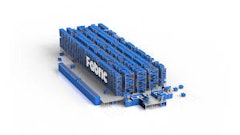
More than two-thirds of executives in commerce and supply chain businesses across North America say their organization’s investment in Direct-to-Consumer has increased over the past three years.
In line with this, companies are seeing an increase in DTC sales. 22% of North American businesses polled say their DTC sales have increased by more than 50% in the past 12 months.
Additionally, forecast growth was overwhelmingly positive; 44% of respondents say that more than 50 percent of their sales come from DTC channels today. However, 58% predict this will be the case within three years.
These were among the key findings of recent research commissioned by Deposco, polling the views and opinions of 200 senior decision-makers from leading commerce and supply chain organizations across North America.
According to Bill Gibson, CEO of Deposco, “By gaining a profound insight into consumer behavior and elevating the customer experience, businesses achieve outstanding results and establish a strong, memorable connection with the customer. This enhanced relationship reinforces the customer's inclination to interact and buy from the business, amplifying growth.”
Key Takeaways:
- Underlining the market's growing maturity, DTC has become one of the top priorities for 82% of businesses surveyed. One key driver of this switch is executives’ desire to better understand the customers they engage with to improve customer outcomes and drive enhanced customer engagement.
- Consumer insight is a big focus in North America, where 32% say having access to more customer data to drive business strategy is a top driver of DTC across their industry sector.
- 35% say creating real-time visibility across all inventory locations to fulfill customer expectations is a main way their business looks to protect itself from failing to fulfill customer expectations when operating DTC.
- The desire to get closer to customers and understand their needs is making DTC a priority for many businesses. 49% of respondents are prioritizing DTC to build strong relationships directly with their customers. Moreover, 44% cite ‘better understanding customers’ spending behaviors, their wants and needs to better target potential customers’.
- We are also seeing growing interest in what has become known as the “Zero Consumer,” who scrimps and saves on lower-cost items but indulges in the occasional luxury purchase. There is no middle ground here. Zero Consumers don’t have loyalty to any one brand. That has made brands more focused on getting to know their customers well as a strategy to reduce churn.
- DTC models often rely on data-driven marketing to understand and target their customers better. This could be advantageous in addressing Zero Consumers by offering highly personalized products or services that align with their values, like sustainability or minimalism, without inflating operational costs.

















